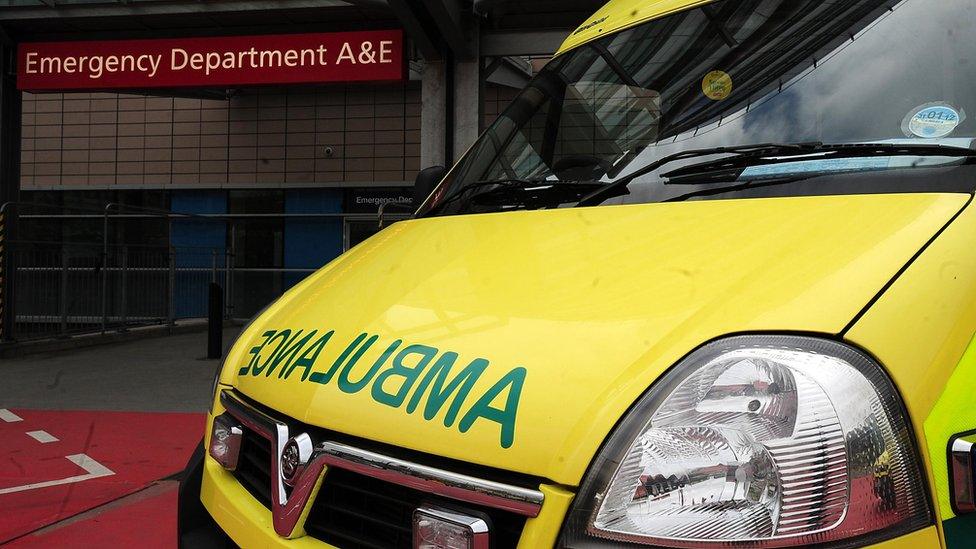Widow to sue after private ambulance 'missed heart attack'
- Published
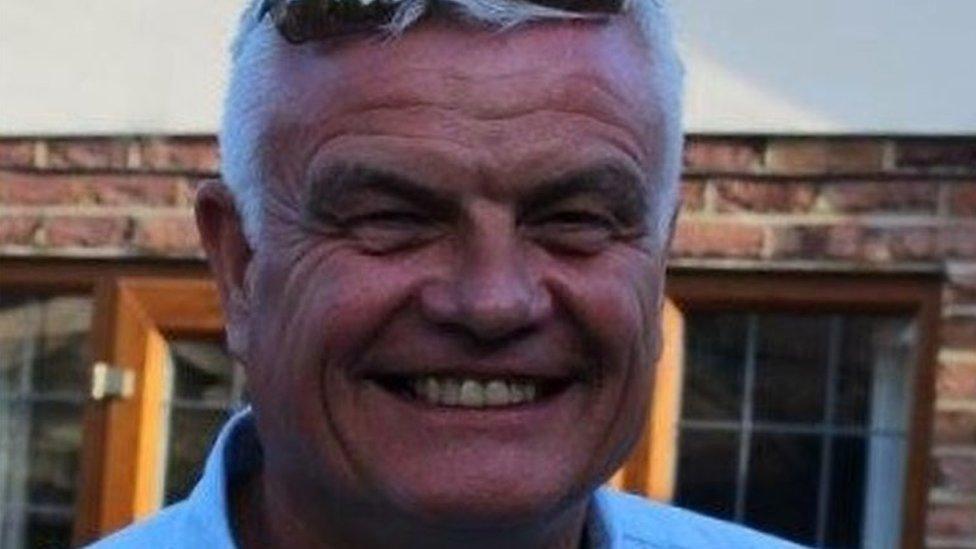
Gary Page lived minutes away from a hospital with a specialist heart unit
A widow is suing an ambulance trust after it dispatched a private ambulance whose crew failed to spot her husband was starting to have a heart attack.
The East of England Ambulance Service NHS Trust uncovered a series of failures and has apologised to Kim Page for the death of her husband Gary.
It described the leader of the crew as "complacent" for not heeding the concerns of a more junior colleague.
A coroner last month found "serious failings" in Mr Page's care.
The episode has shone a spotlight on the greater use of private ambulances in attending emergency calls.
Mrs Page is taking civil action against East of England Ambulance Service and Private Ambulance Service Ltd for damages.
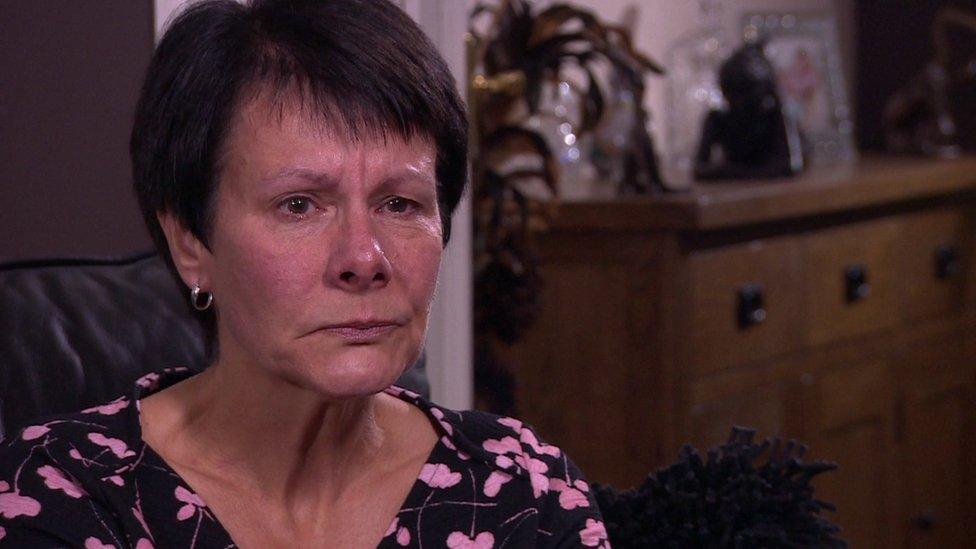
Kim Page called 111 when her husband was in pain
Kim and Gary Page - who was 54 - were relaxing at home in Laindon in Essex in February this year when Gary felt pains in his chest and right arm.
Mrs Page looked up the symptoms on the internet and dialled 111 to seek advice.
She said: "Gary was on his hands and knees on the sofa speaking to 111. He was able to talk but he was obviously in discomfort."
East of England Ambulance trust dispatched a team at the second highest level.
Because they were busy, they sent a private ambulance team - a regular occurrence in England, Wales and Northern Ireland.
The team from Private Ambulance Service Limited didn't have a paramedic on board. The most senior member of the crew was an emergency technician called Lauren de la Haye.
She received her qualification certificate a few days before, although she had practised as an emergency medic under supervision for several years.
Mrs Page remembers Ms de la Haye saying: "It is definitely not your heart, you are definitely not having a heart attack.
"I wish all my patients were like you sitting here talking to me."
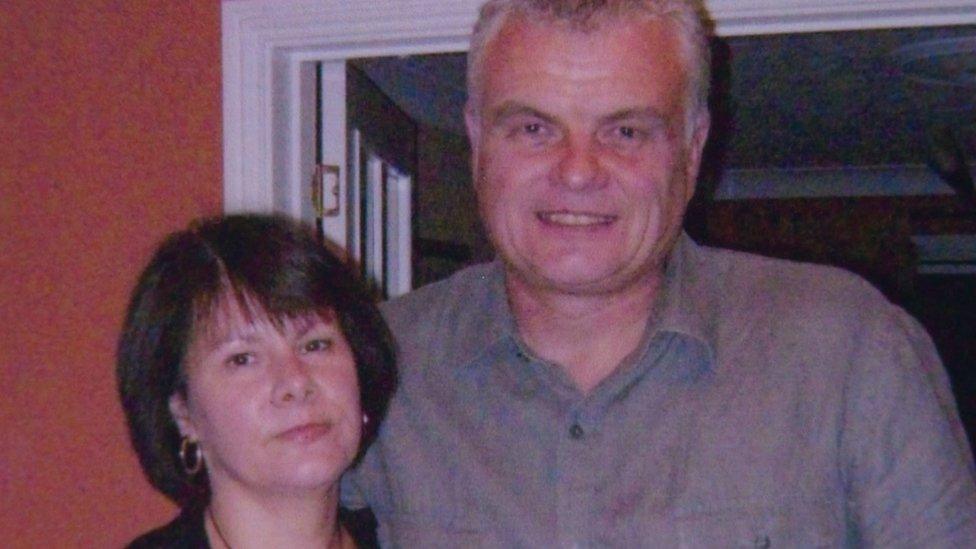
Gary and Kim Page
The team carried out two heart traces, one with four leads, the other with 12.
The results showed that Gary's heart beat was abnormal. "Abnormal ECG" was written across the top of one of the traces.
Ms de la Haye did not agree - even when another team member said he was worried.
Mrs Page said: "When Gary asked, 'What do you think it could be?' Lauren de la Haye asked him what he did for a living.
"He explained he went into lofts as part of his job and she thought he could have pulled a muscle, or that he might have indigestion.
"Then she said, 'We can take you to the hospital but you will have a 10-hour wait.'
"She said that three times, as if it were unnecessary for him to go."
Still in pain, and without his reading glasses, Mr Page signed a document that Ms de la Haye presented saying that he agreed not to go to hospital.
The crew left. Mrs Page says the medics did not advise them what to do if the symptoms continued.
Minutes from hospital
She went to a nearby pharmacy to fetch indigestion medicine and painkillers while Gary took a shower.
The couple were relieved but Gary's symptoms did not ease.
They eventually went to bed and Kim fell asleep. Gary, who was 6ft 4in, moved into the spare room to get more comfortable.
Just before dawn, Kim woke to hear unusually heavy snoring and snorting from the spare room.
She tried to wake Gary, first gently then more forcefully. Panicking, she called 999, and this time an NHS ambulance came.
It was too late. Gary took his last breath as Kim tried to revive him.
He died 10 hours after his symptoms started, and was just minutes away from a specialist heart unit at Basildon University Hospital.
An inquest heard the root cause of Gary Page's death was Lauren de la Haye's failure to identify an evolving heart attack, and her not contacting the clinical advice line for further support, even when prompted to do so by a more junior colleague.
Rules clarified
Ms de la Haye did not attend the inquest as she was ill.
She told the BBC that an ECG could be difficult to interpret for a technician, and that Mr Page was advised to seek further help, which he did not do.
She said Gary and Kim Page fully understood what they were agreeing to when signing the transport waiver. She is now a student on another medical course.
The inquest also heard that the lack of a paramedic was a problem - but was not against the East of England's Ambulance Service Trust's rules.
The Trust offered a formal apology to Mr Page's family and said: "The seriousness of Mr Page's condition was not recognised and further advice not sought."
In response to Mr Page's death, the rules for private ambulance crew in the East of England Trust area have been clarified.
Any medic below the level of paramedic must either take a patient to a hospital, or phone the clinical advice line at East of England Ambulance Service to explain why the patient can be discharged.
Spending on private ambulances to answer 999 calls in England has trebled in the past four years.
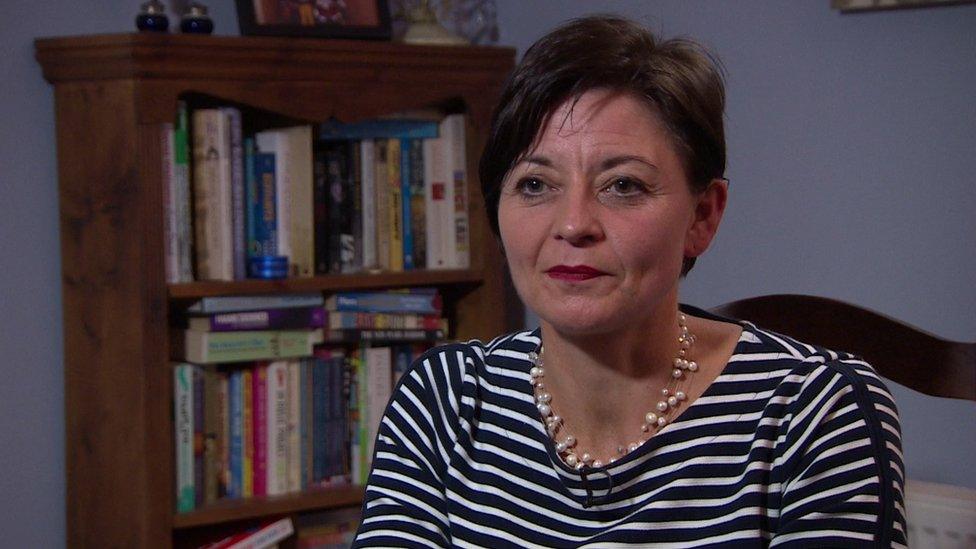
Mrs Page's solicitor, Stephanie Prior: "They are not on any professional register"
In 2011-12 ambulances trusts spent about £22m. By this year, the figure was closer to £69m.
The private sector offers higher pay to their staff and ambulance trusts find it harder to compete for qualified staff as there is a shortage of paramedics.
The number of calls for an ambulance has also more than doubled in the last decade to more than nine million a year.
Mrs Page's solicitor, Stephanie Prior, believes the general public is largely unaware of the extent to which private ambulance crews are used in emergency situations.
She said: "They wear the same green uniforms as NHS ambulance crews and patients put their trust in them.
"But unlike with a doctor, nurse or paramedic, emergency assistants or technicians are not on any professional register.
"No-one but their direct employer knows how qualified they are or how experienced.
"There is no way to record it if they make a mistake or should be struck off."
'Love of my life'
But the Independent Ambulance Association believes the public shouldn't be alarmed.
Alan Howson, from the association, said: "We were very sorry to learn of this incident and our thoughts are with the victim's family and loved ones.
"Many personnel in the independent sector are both current and former NHS staff and highly qualified.
"Ideally technicians should be under the supervision of paramedics.
"If they were registered separately then it would mean they are more accountable and could be 'struck off' if they were shown to have malpractised."
It is little comfort to Kim Page. "I've lost the love of my life," she said.
"He should be here with me now, because this was all unnecessary and now I've got to find a way of living without him, and I don't want to."
- Published13 September 2016
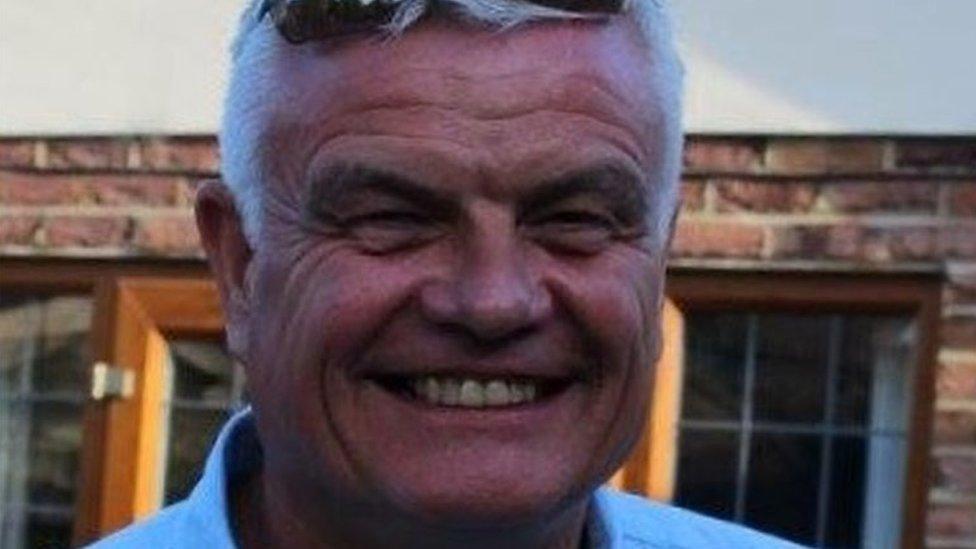
- Published26 May 2016
